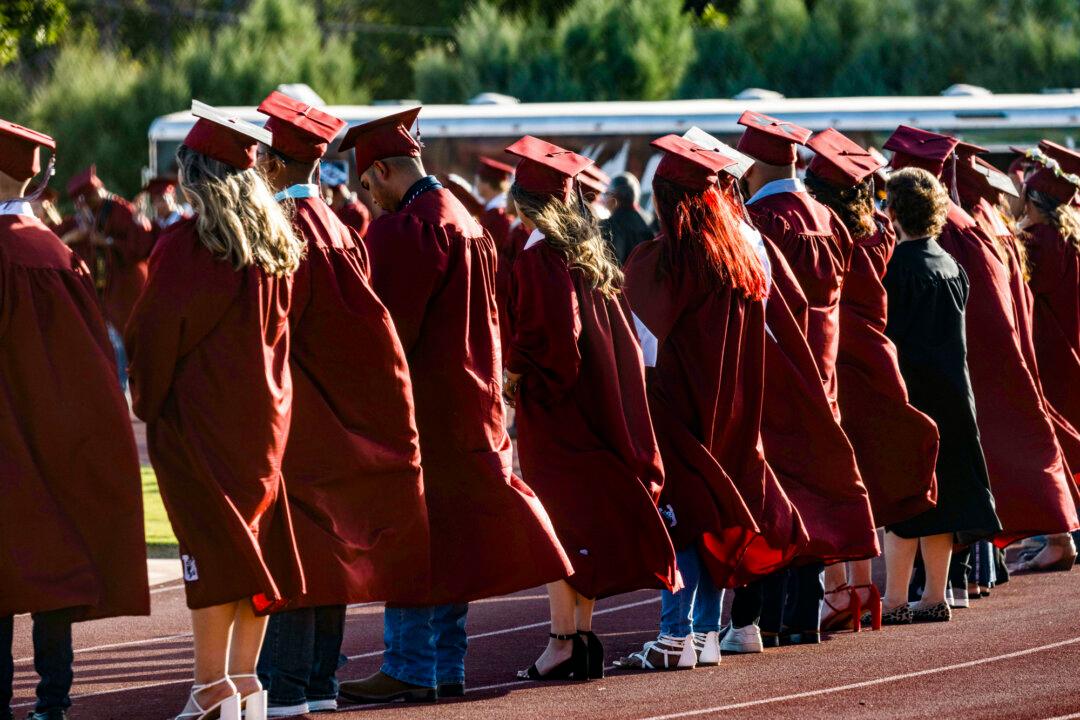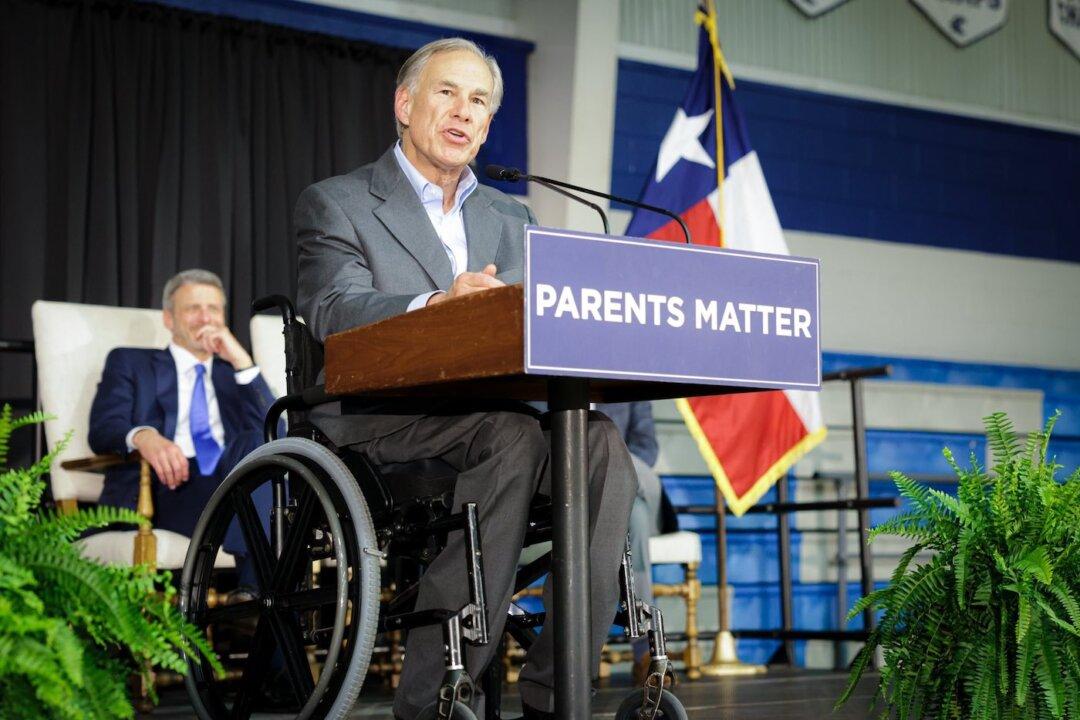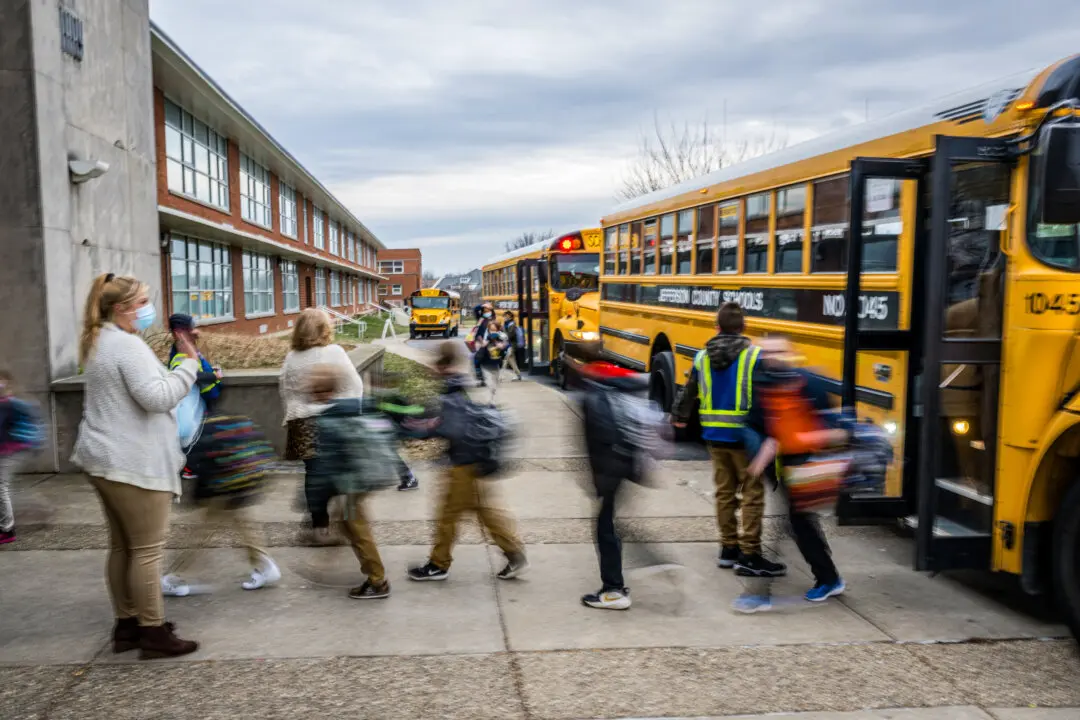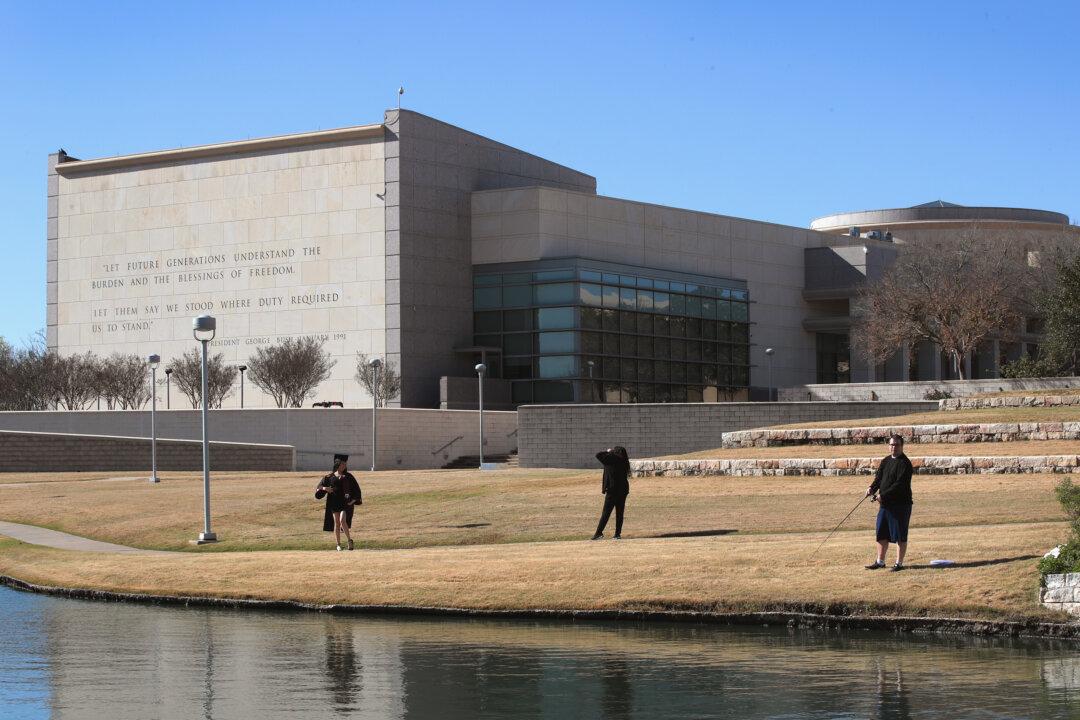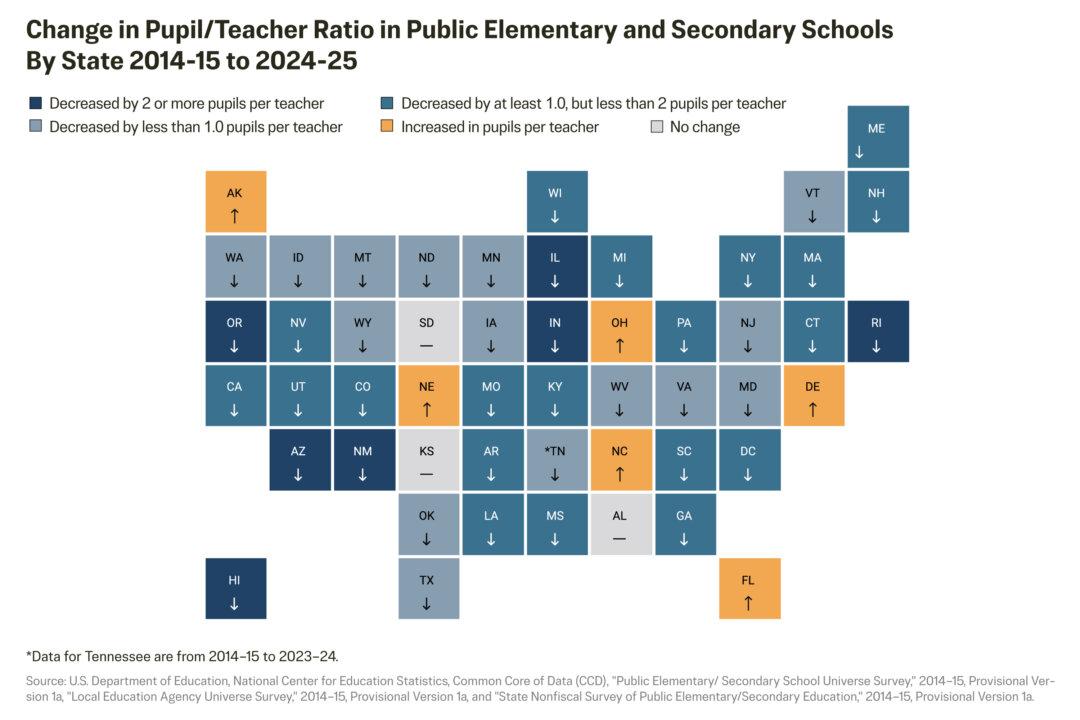A roomful of Texas lawmakers and Gov. Gregg Abbott joined President Donald Trump on a phone call on Wednesday to reaffirm Republican commitment to universal school choice in the Lone Star State.
The meeting took place in Austin during a break from the House floor. The legislation, which was already approved by the state Senate, earmarks $1 billion for private school vouchers in the first year, or up to $10,000 per selected child.
